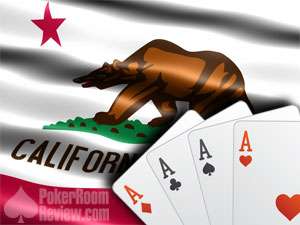Lack of Tribal Unity Continues to Plague Online Poker in California
 In another blow to the unity of tribal gaming interests in California, the San Manuel Band of Serrano Mission Indians has announced it is leaving its membership in the California Online Poker Association (COPA) effective immediately.
In another blow to the unity of tribal gaming interests in California, the San Manuel Band of Serrano Mission Indians has announced it is leaving its membership in the California Online Poker Association (COPA) effective immediately.
San Manuel is one of the largest tribes in the Golden State and its casino is nearest to Los Angeles. It had been one of the biggest investors in COPA’s efforts in the push for online poker legislation in California–the most populous state in the U.S. In addition to the Morongo tribe, San Manuel was behind COPA’s launching of Calshark.com, a free-play online poker site. Calshark.com is hoping to make the transition from free-play to real-money online poker if state lawmakers pass Internet poker regulations.
However, passage of a poker-only proposal authored by Senators Rod Wright and Darrell Steinberg is having difficulty making headway in the legislative process due to the failure to find common ground among the state’s gaming interests. Cardrooms, Indian tribes and horse-racing executives can’t seem to agree on legislation that will appease them all. Especially troubling is the fact that the state’s many Indian tribes cannot agree among themselves, let alone see eye-to-eye with non-tribal gaming parties.
COPA was established in 2009 and consists of 31 card clubs and 29 native tribes who have joined forces to secure the enactment of online poker legislation in the state and to ensure that each of its members receive a fair share of revenue. The smaller tribes and card rooms seemingly benefit more from aligning with COPA, as attempting to set up their own Internet poker venture could be quite costly. A huge tribe such as San Manuel is in a much better position to branch off independently.
According to eGaming Review North America, San Manuel has been considering alternative plans apart from COPA in which to launch an online poker business for quite some time. The tribe has invested huge amounts of money into the association and has not seen any return on its investment. No details have yet been forthcoming on whether the San Manuel tribe has devised a plan regarding online poker or if discussions with a third-party gaming software supplier have commenced.
COPA’s business model is such that the revenue distributed to members will be based upon the number of players directed to Calshark.com. The competition within California is expected to be fierce with tribes such as United Auburn Indian Community and Pechanga likely to obtain a sizeable share of the market. Attracting and retaining players may require a huge outlay of marketing and promotion dollars that entails a risk that may be greater than its reward–especially for a tribe like San Manuel who is footing a large part of COPA’s expenses.
The lack of online poker regulation in California has been frustrating to all involved, especially Sen. Wright, who has been attempting to please the state’s many gaming interests. The California legislative session will begin again in January, at which time Wright is expected to introduce another online poker bill.



















COMMENTS